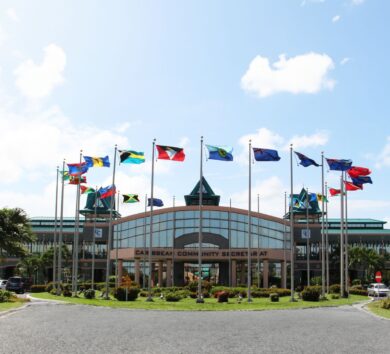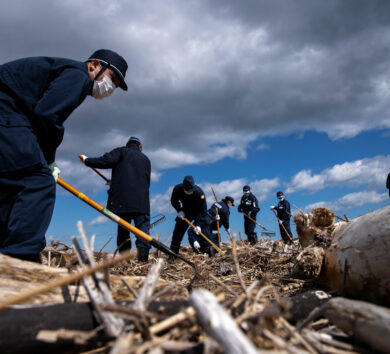

In keeping with its promise to provide relief to the apprehensions of students and teachers with regard to the sitting of upcoming examinations, the Caribbean Examinations Council has released the 2021 broad topics for all paper two Caribbean Advanced Proficiency Exam (CAPE) and Caribbean Secondary Examinations Certificate (CSEC) exams.
The release of the broad topics is one in a number of measures put forward by the council to allay the worries of regional education stakeholders as it relates to the June/July examination sitting.
According to the broad topic listing, paper two exam topics for CSEC examinations will flow as follows:
| Subject | Paper 02 | Paper 03 |
| Biology | 1. Nutrition 2. Biotic and Abiotic factors 3. Food Chains 4. Predator/Prey Relationships 5. Decomposers 6. Treatment and Control of Diseases 7. Transport 8. Excretion 9. Reproduction 10. Continuity and Variation | 1. Food Tests 2. Ecological Study and Appropriate 3. Sampling Methods 4. The Eye 5. Disease |
| Chemistry | 1. Atomic Structure 2. Periodic Table and Periodicity 3. Mole Concept 4. Acids, Bases and Salts 5. Electrochemistry 6. Sources of Hydrocarbon Compounds 7. Organic Chemistry – An Introduction 8. Reactions of Carbon Compounds 9. Non-metals 10.Qualitative Analysis | 1. Mole Concept 2. Acids, Bases and Salts 3. Rates of Reaction 4. States of Matter |
| English Language (A) | 1. Section A consists of one compulsory question – informative discourse (summary). 2. Section B consists of one compulsory question – informative discourse (exposition). 3. Section C consists of two optional questions. These questions require candidates to produce a short story. 4. Section D consists of one compulsory argumentative essay question. | This paper will consist of a guided critique of three pieces of stimulus material: 1. An excerpt from a recent newspaper article on a topical issue 2. A cartoon strip or lyrics to a song on the same topical issue 3. A poem, short story, public speech (extract) on the same issue |
| English Literature (B) | This paper is divided into three sections: 1. Section A – Drama (Shakespeare and Modern Drama). This section consists of TWO Type A questions, ONE on each text. 2. Section B – Poetry. This section consists of TWO Type B questions, one generic question allowing candidates to use two appropriate choices from the prescribed poems and one question based on two named poems from the prescribed list. 3. Section C – Prose Fiction (EITHER West Indian novel OR other novels in English OR West Indian short story and other short stories in English). This section consists of FOUR questions: TWO Type A questions, ONE on each prescribed novel and TWO Type B questions, one generic question allowing candidates to use two appropriate choices from the prescribed short stories and one question based on two named short stories from the prescribed list. | |
| Information Technology | 1. Computer Fundamentals 2. Networking 3. Implications of Misuse and Cybersecurity 4. Word Processing 5. Spreadsheets 6. Database 7. Problem Solving and Programming – Algorithms/Flowcharts and Pseudocodes – Trace Tables – Variables and Constants – Conditional Statements and Relational Operators (Loops) | 1. Word Processing 2. Web Page Design 3. Spreadsheets 4. Database Management 5. Problem Solving and Programming – Algorithms/Flowcharts and Pseudocodes – Trace Tables – Variables and Constants – Conditional Statements and Relational Operators (Loops) – IPO Chart |
| Mathematics | This paper consists of ten compulsory structured-type questions based on the following: 1. Number Theory 2. Consumer Arithmetic 3. Computation 4. Measurement 5. Statistics 6. Algebra 7. Relations, Functions and Graphs 8. Investigation 9. Geometry and Trigonometry 10. Vectors and Matrices | 1. Measurement 2. Geometry and Trigonometry 3. Relations, Functions and Graphs 4. Matrices |
| Physics | 1. Graph Work and Analysis of data 2. Deformation 3. Turning Forces 4. Temperature 5. Gas Laws 6. Types of Waves 7. Speed of Sound 8. Reflection 9. Refraction 10. Critical Angle and Total Internal Reflection 11. Alternating Current 12. Resistance 13. Magnetic Forces 14. Electromagnetic Force 15. Motors 16. Particles in the Atom 17. Radioactive Emissions 18. Half-life | 1. Graph Work and Analysis of Data 2. Measurement 3. Hydrostatics 4. Specific Heat Capacity 5. Resistance |
| Social Studies | Section A – Answer ALL questions. 1. Family 2. Social Groups and Institutions, including Government 3. Development and Use of Resources 4. Regional Integration Section B – Answer ONE question. 5. Communication 6. Consumer Affairs 7. Tourism | Five structured questions based on research activities. The paper will test candidates’ ability to employ skills of enquiry, communication, critical thinking, and decision-making. |
| Spanish | A written paper in four Sections, one question in each section. Section I: Requires candidates to provide written responses in the target language to a series of situations described in English. Of the following functions, ten will appear in the situational responses. |
Additionally, the paper two exam topics for CAPE examinations will flow as follows:
UNIT 1
| Subject | Paper 02 | Paper 03 |
| Biology | 1. Aspects of Biochemistry 2. Cell Structure and Functions 3. Structure and Roles of Nucleic Acids 4. Cell Division and Variation 5. Aspects of Genetic Engineering 6. Reproduction in Plants 7. Sexual Reproduction in Humans | 1. Aspects of Biochemistry 2. Patterns of Inheritance 3. Reproduction in Plants |
| Chemistry | 1. Atomic Structure 2. Mole Concept 3. Redox Reactions 4. Rates of Reaction 5. Chemical Equilibria 6. Buffers and pH 7. Group II elements 8. First Row Transition Elements | 1. The Mole Concept 2. Rates of Reaction 3. Identification of Cations and Anions |
| Communication Studies | Candidates will be asked to write THREE essays in which they will be required to do the following: 1. Analyze an expository passage written in Standard English – Summarize main message and identify author’s purpose – Assess the effectiveness of the organizational and rhetorical strategies used to convey the message and achieve the writer’s purpose. 2. Analyze a narrative passage which includes Caribbean Creole English – Discuss the use of elements of language, such as dialectical variety, language registers, communicative behaviours and attitudes to language. 3. Write a proposal for the delivery of a message to a specific audience and justify the use of the following for the targeted audience. – Promotional strategies – Rhetorical appeals – Presentation strategies – Technological devices – The timeline for delivery | Candidates will be asked to write THREE essays in which they will be required to do the following: 1. Analyse an expository passage written in Standard English – Summarize main message and identify author’s purpose. – Assess the effectiveness of the organizational and rhetorical strategies used to convey the message and achieve the writer’s purpose. – Analyse a narrative passage which includes Caribbean Creole English – Discuss the use of elements of language, such as dialectical variety, language registers, communicative behaviours and attitudes to language. – Envision how the communicative behaviours could be depicted. 3. Analyse a message in which they – identify the audience – justify the author’s strategies for appealing to this audience – justify context of message dissemination. |
| Information Technology | 1. Information Technology vs other Disciplines in Computing 2. Information Processing 3. History of Information Technology 4. Characteristics of Information Sources 5. Tools Used in Information Technology 6. Components of an Information Technology System 7. Purpose and Functions of Hardware Components 8. Types of HCI 9. Security of Information Technology Systems 10. Structure of the World Wide Web 11. Concept of Problem-solving 12. Problem-solving Techniques | 1. Information Technology problems 2. Data Gathering 3. Implementing Solutions and Justifications |
| Law | 1. Roles and Functions of the Functionaries in the Legal Personnel 2. The Doctrine of Separation of Powers – The Concept of Rule of Law – Judicial Review 3. Defense in Criminal Law | Child Sex Abuse |
| Literatures in English | This is an extended essay paper in three sections: 1. Section A (Drama) will comprise TWO questions, ONE on each of the prescribed texts. Candidates must answer ONE question. 2. Section B (Poetry) will comprise TWO questions on the three prescribed poets. Candidates must answer ONE question with reference to one of the prescribed poets. 3. Section C (Prose Fiction) will comprise TWO questions of which candidates must answer ONE. Candidates must use ONE Caribbean text AND EITHER ONE British, OR ONE American, OR ONE Postcolonial text. | Paper 032 is an extended essay paper consisting of THREE questions, one on each of the modules. Candidates must write a critical appreciation of an excerpt from a play, a poem and a prose extract. |
| Physics | 1. Motions 2. The Effect of Forces 3. Harmonic Motion 4. Properties of Waves 5. Physics of the Ear and Eye 6. The Kinetic Theory of Gases 7. Heat Transfer | 1. Motions 2. Properties of Waves 3. Design and Use of Thermometers 4. Mechanical Properties of Materials |
| Pure Mathematics | 1. Reasoning and Logic 2. The Real Number System 3. Algebraic Operations 4. Exponential and Logarithmic Functions 5. Functions 6. The Modulus Function 7. Cubic Functions and Equations 8. Trigonometric Functions, Identities and Equations 9. Coordinate Geometry 10. Vectors 11. Limits 12. Differentiation 13. Integration | 1. The Real Number System 2. Exponential and Logarithmic Functions 3. Cubic Functions and Equations 4. Trigonometric Functions, Identities and Equations 5. Coordinate Geometry 6. Vectors 7. Differentiation 8. Integration |
| Sociology | 1. Principles of Scientific Research 2. Education 3. Concepts of Stratification in a Comparative Perspective 4. Theoretical Perspectives 5. Evolution of Caribbean Stratification | Three structured questions based on research activities. This paper will test knowledge of sociological concepts contained in the syllabus and skills of sociological research. |
UNIT 2
| Subject | Paper 02 | Paper 03 |
| Biology | 1. Cellular Respiration and ATP Synthesis 2. Energy Flow and Nutrient Cycling 3. Transport in the Phloem 4. Nervous Coordination Immunology 5. Substance Abuse | 1. Cellular Respiration and ATP Synthesis 2. The Kidney, Excretion and Osmoregulation 3. Health and Disease 4. Substance Abuse |
| Chemistry | 1. Structure and Formulae 2. Functional Group Analysis (Alkanes, Alkenes) 3. Uncertainty in Measurements 4. Titrimetric Methods of Analysis 5. Gravimetric Methods of Analysis 6. Locating and Operating Industrial Plants 7. Ammonia 8. Ethanol | 1. Functional Group Analysis, Reactions and Mechanisms 2. Titrimetric (Volumetric) Methods of Analysis 3. Crude Oil |
| Caribbean Studies | 1. Impact of Geographical phenomena – coral reefs 2. Associations Related to Integration in the Caribbean 3. Impact of Societal Institutions on Caribbean People – Religion: African, Asian, European-derived, syncretic 4. Contributions of Sports to Caribbean Development | 1. Research Process – Research Design – Collecting Information – Presenting and Interpreting Data – Drawing Conclusions 2. The Use of Technology in Education in a Named Caribbean Country since 1980 OR Festivals in the Caribbean Country |
| Information Technology | 1. Files and Databases 2. Normalization 3. Software Tools 4. Information Sources 5. Information Technology Tools 6. Webpages 7. Information Technology and Society 8. Legal and Ethical Considerations 9. Computer Crimes 10. Cybersecurity 11. Policies and Practices | 1. Information Technology Problems 2. Use of Information Technology Tools to Solve Real-life Problems 3. Risk Management |
| Law | 1. Defamation 2. Formation and Discharge of Contracts 3. Law of Easements | Fixtures and Chattels |
| Literatures in English | This is an extended essay paper in three sections: 1. Section A (Drama) will comprise TWO questions of which candidates must answer ONE. Candidates must use ONE of the prescribed works of Shakespeare AND ONE of the prescribed works of Modern Drama. 2. Section B (Poetry) will comprise TWO questions, one on each of the prescribed poets. Candidates must answer ONE question. 3. Section C (Prose Fiction) will comprise TWO questions. Candidates must answer ONE question with reference to ONE of the three prescribed texts. | Paper 032 is an extended essay paper consisting of THREE questions, one on each of the modules. Candidates must write a critical appreciation of an excerpt from a play, a poem and a prose extract. |
| Physics | 1. Electrical Quantities 2. Electrical Circuits 3. Electric Fields 4. Capacitors 5. Operational Amplifiers 6. Particulate Nature of Electromagnetic Radiation 7. Radioactivity | 1. Electrical Quantities 2. Electrical Circuits 3. Radioactivity 4. Alternating Currents |
| Pure Mathematics | 1. Complex Numbers 2. Differentiation 3. Integration 4. Sequences 5. Series 6. The Binomial Theorem 7. Roots of Equations 8. Counting 9. Matrices and Systems of Linear Equations 10. Differential Equations and Modelling | 1. Complex Numbers 2. Differentiation 3. Integration 4. Series 5. The Binomial Theorem 6. Roots of Equations 7. Counting 8. Matrices and Systems of Linear Equations 9. Differential Equations and Modelling |
| Sociology | 1. Concepts of Development 2. Indicators of Development 3. The Sociological Perspectives of Development 4. Concepts Related to Crime and Deviance 5. Perspectives on Crime and Deviance 6. Concepts Underlying Major Caribbean Social Issues 7. Sociological Perspectives on the Causes and Effects of the Major Caribbean Social Issues 8. Causes and Effects of Major Caribbean Social Issues | Three structured questions based on research activities. This paper will test knowledge of sociological concepts contained in the syllabus and skills of sociological research. |
A complete listing of subjects and their broad topics can be found on the CXC website.






Comments